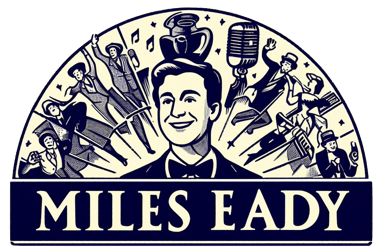Lorenz Hart Part One: The Genius Who Couldn’t Believe in Happy Endings
Lorenz Hart'sTender Genius
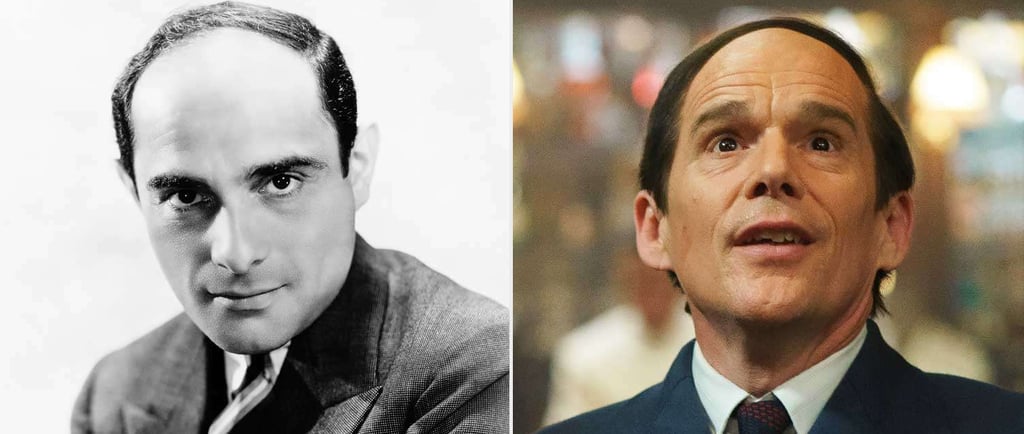

Blue Moon
There’s an irony in seeing Lorenz Hart — the man who penned the lyrics for Blue Moon — finally have his moment under that very moon. Richard Linklater’s film Blue Moon, starring Ethan Hawke as Hart and Andrew Scott as his creative partner, Richard Rodgers, is set in the dim corners of a bar, in the shadows of a Broadway premiere. March 31st, 1943: Oklahoma! bursts onto the St. James Theatre stage, heralding Rodgers’ partnership with Oscar Hammerstein II and leaving Hart — brilliant, self-destructive, and rueful — nursing a drink at Sardi’s.
The film unfolds in this single, aching evening. Hawke’s Hart drifts between charm and despair, jokes sliding off his lips like cigar smoke, while the barman counts the refills he knows shouldn’t be served. Margaret Qualley flits through as a muse; Bobby Cannavale is a quietly sympathetic barman; and Scott — fresh from a Silver Bear at Berlinale — radiates patience and dignity as Rodgers.
It’s a story about what happens when your greatest collaborator moves on without you, when the music continues and you’re left in the wings, with lyrics but no tune.
Linklater, ever fascinated by the rhythms of time (Boyhood, Before Midnight), lets the evening play in real time, bittersweet and precise. Robert Kaplow’s dialogue crackles with Hart’s nervous wit. In his lyrics, such as “My Funny Valentine,” or “Bewitched, Bothered and Bewildered,” Hart could make heartbreak sparkle. And here, finally, the spotlight lingers on him — not the songs, not the triumphant Rodgers-Hammerstein commercial machine — but on Hart himself, at closing time, confessing his genius in whispers and bourbon fumes.
Word and Music: A Hollywood Fairy Tale
Blue Moon is not the first cinematic take on Hart. In 1948, MGM gave us Words and Music, a Technicolor confection claiming to tell the story of Rodgers and Hart. Anyone acquainted with Hart’s real life might call it studio biography with a great soundtrack.
Norman Taurog directed, Mickey Rooney played Hart, Tom Drake played Rodgers. The film is the archetype of the “composer biopic” — music authentic, life reinvented. Alcoholism, melancholy, sexuality — all scrubbed clean. Hart becomes a manic pixie tunesmith, boyishly fragile, charming, a little loveable chaos who just needs more sleep. His real wit, his coded yearning, his urban melancholy is airbrushed in technicolour smiles.
Where MGM offered the joyful curtain raiser, Linklater offers the torch song. Both use Hart’s catalogue, but in radically different keys. One dazzles; one laments. In Words and Music, Rodgers narrates — the survivor recounts the story. In Blue Moon, Hart sits alone at a bar and finally speaks.
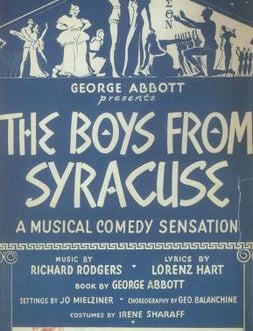

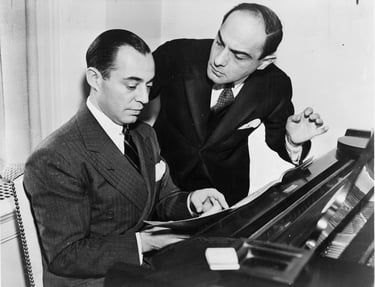

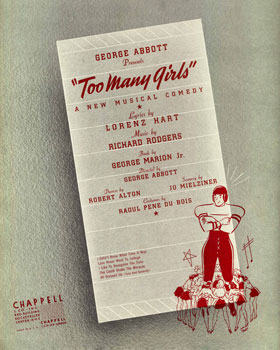

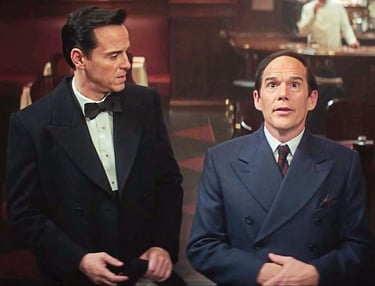

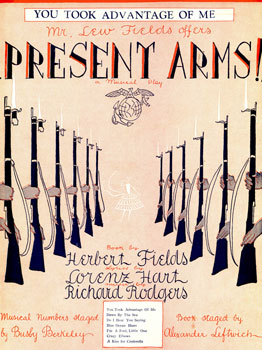





Watch
Still live at time of posting — two very different versions of the Lorenz Hart story, told generations apart:
Words and Music (1948) – Official Trailer
MGM’s glossy fantasy of the Rodgers & Hart partnership, starring Mickey Rooney as a boyish, manic Hart. Here, cocktails come without hangovers. The trailer promises “songs you love and a story to warm your heart.”
Blue Moon (2025) – Official Trailer
Richard Linklater trades studio sheen for twilight shadows. Ethan Hawke’s Hart lingers at the bar as Oklahoma! opens across town — a night of endings disguised as beginnings. Hart’s genius is caught in the moment before the lights go out.
Lorenz Hart: A Poet on Broadway by Frederick Nolan
An insightful portrait of Hart’s extraordinary career and inner turmoil. Nolan traces the lyricist’s collaborations with Rodgers, revealing how Hart’s wit and melancholy shaped the sound of Broadway’s golden age.
Buy it here.
Broadway Babies by Ethan Mordden
Mordden’s lively chronicle of musical comedy’s evolution spotlights Hart as one of its most distinctive voices. His analysis of the Rodgers & Hart partnership captures their creative friction — two contrasting temperaments whose union kept Broadway forever fresh.
Buy it here.
Explore the Series
[Start of Series]
→ Part 2: Lorenz Hart Part Two: The Schoolmaster and the Poet: Rodgers & Hart
Blue Moon: A Song of Self-Mockery Turned Immortal
The film Blue Moon mirrors Hart’s real-life contradictions. The titular song, now immortal, began life as a private humiliation. First called My Prayer for Reckless (1934), then The Bad in Every Man for Manhattan Melodrama, it was rejected both times. Only when a publisher suggested something “corny, like Blue Moon” did Hart relent — and from that exasperated joke came a torch song of timeless poignancy:
"Blue moon, you saw me standing alone
Without a dream in my heart,
Without a love of my own."
Hart’s genius was built on reversals: wit disguising despair, comedy exposing loneliness. He could make unrequited love urbane, urbane love heart-wrenching. My Funny Valentine gives a perfect example:
“Your looks are laughable
unphotographable.”
Hart could mock sentiment while drowning in it.
Hart’s melancholy was no pose. Small, with a head “a bit too large for his body,” friends described him as “gnomelike” and “impish.” When the alcohol and despair were done, Hart could conjure lyrics of breathtaking precision, the perfect marriage of words and Rodgers’ music.
From Manhattan to Pal Joey, the duo’s catalogue rolled out with the regularity of Fords but the jazzy glamour of Bugattis. Songs like The Lady is a Tramp, My Funny Valentine, Blue Moon — all clever reversals, witty rhymes, aching truth.
By 1943, Hart’s world darkened further: his mother’s death removed his last restraint; Oklahoma! signaled Broadway’s future. He attended the premiere, offered his congratulations, and six months later, the world lost him to pneumonia, aged forty-seven.
Linklatter's Blue Moon reclaims Hart, letting his genius out of the shadows and once again, his lyrics sparkle with irony.
